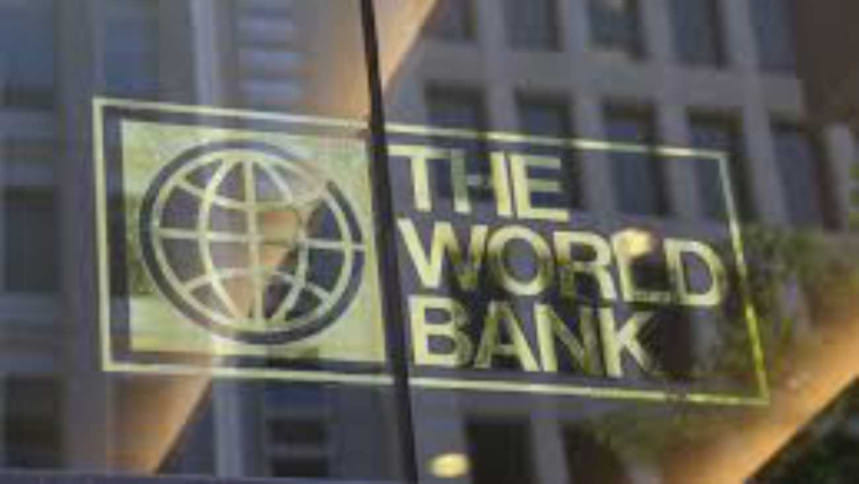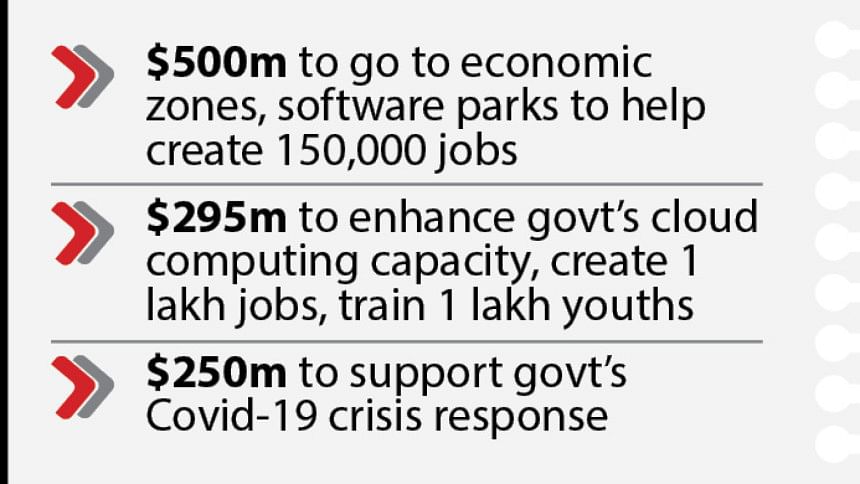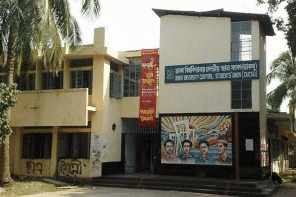WB injects $1b to help cushion pandemic blow


Bangladesh's efforts to feed the nation, create jobs and keep the ailing economy afloat amid the progressively ferocious pandemic received a shot in the arm after the World Bank yesterday approved $1.05 billion.
"This is an extraordinary response to an unprecedented crisis," said Mercy Tembon, the WB's country director for Bangladesh and Bhutan, in a press release after the loan was sanctioned.
The coronavirus pandemic has deeply jeopardised many of Bangladesh's remarkable achievements in poverty reduction and shared prosperity, including livelihoods of its population, she added.
The massive fund injection from the Washington-based multilateral lender will hopefully reverse some of the damage caused by the rogue virus, which is showing no signs of abating.
The government has been compelled to seek additional financing from abroad after domestic revenue generation crashed and the flow of exports and remittances -- the country's two major sources for foreign currencies -- dropped sharply because of the fallout of the pandemic at home and abroad.
And the multilateral lenders seem to be rallying behind Bangladesh in this hour of need.
Earlier, the World Bank's sister concern International Monetary Fund has sanctioned $732 million in emergency funding to meet the urgent balance-of-payments and fiscal needs arising from the coronavirus outbreak in the country.
The Asian Development Bank has approved $500 million and the Asian Infrastructure Investment Bank sanctioned $250 million.
And all stand ready to inject more funds if needed.
Economists are in favour of the government turning to external financing instead of dipping its hand into the domestic banking system, which can go on to crowd out private sector investment when the economic recovery eventually happens.
Besides, the interest burden for external funds is substantially lower than for domestic borrowing given the historically low-interest rates prevailing in the Western world for a while now.
The latest round of fund injection from the WB came for three projects to help the country create quality jobs, accelerate economic recovery from the coronavirus pandemic and build resilience to future crises.
The projects will help the people and the economy bounce back by creating more and better jobs and promoting direct private investment in specialised economic zones while enhancing the foundations for a digital economy, according to Tembon.
The $500 million Private Investment and Digital Entrepreneurship (PRIDE) Project of the WB will promote and attract about $2 billion direct private investments and strengthen social and environmental standards in selected public and private economic zones and software technology parks.
It will also create 150,000 jobs, of which about 40 percent of the jobs in software parks and 20 percent of jobs in Economic Zones will be for women.
The $295 million Enhancing Digital Government and Economy (EDGE) Project will establish an integrated, cloud-computing digital platform for all government agencies and improve cyber-security, which will result in savings of $200 million in the public sector's IT investments.
Further, it will build resiliency during future crises, whereby the platform will enable the government to operate virtually and deliver critical public services to citizens and businesses.
The project will create 100,000 jobs, with a special focus on women, train 100,000 youth in digital and disruptive technologies, and establish a digital leadership academy and centres of excellence.
The $250 million Second Programmatic Jobs Development Policy Credit will create fiscal space to support the government's response to the COVID-19 crisis, while helping recovery and building resiliency of the economy, of workers and vulnerable populations to future shocks.
The financing will help Bangladesh to create large-scale jobs for citizens, including women, youth, and migrant workers.
The project -- which is the second one in a programme of three -- supports reforms to modernise the trade and investment regime, build a stronger system of expanded safety nets and labour protections, and help vulnerable population access better jobs, especially during crises.

 For all latest news, follow The Daily Star's Google News channel.
For all latest news, follow The Daily Star's Google News channel. 



Comments